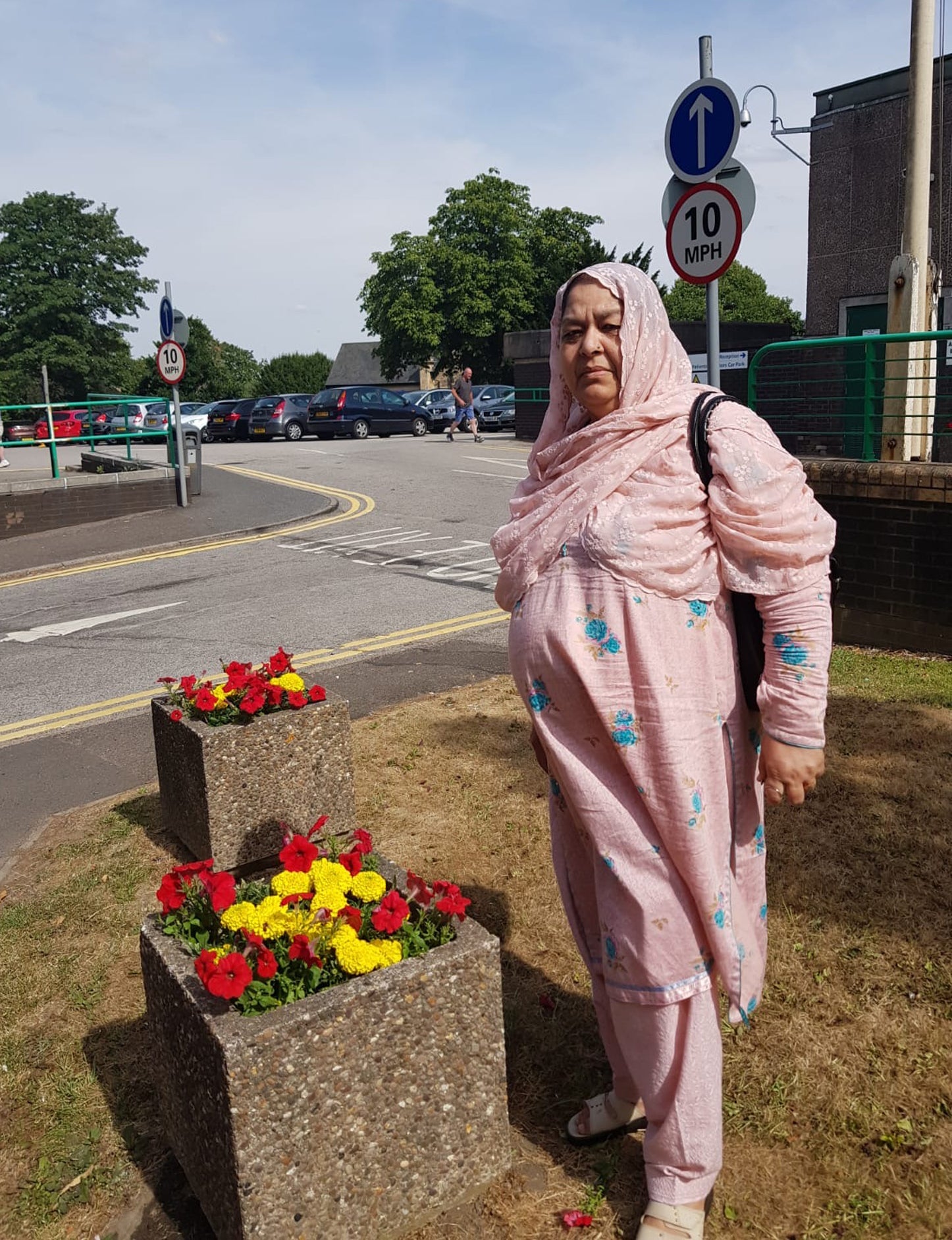National Highways boss tells inquest smart motorways ‘are safer’
Nick Harris was giving evidence at the inquest into the death of Nargis Begum, who died on the M1 after getting out of a car her husband was driving.

Your support helps us to tell the story
From reproductive rights to climate change to Big Tech, The Independent is on the ground when the story is developing. Whether it's investigating the financials of Elon Musk's pro-Trump PAC or producing our latest documentary, 'The A Word', which shines a light on the American women fighting for reproductive rights, we know how important it is to parse out the facts from the messaging.
At such a critical moment in US history, we need reporters on the ground. Your donation allows us to keep sending journalists to speak to both sides of the story.
The Independent is trusted by Americans across the entire political spectrum. And unlike many other quality news outlets, we choose not to lock Americans out of our reporting and analysis with paywalls. We believe quality journalism should be available to everyone, paid for by those who can afford it.
Your support makes all the difference.Smart motorways are safer than the conventional carriageways they have replaced, the head of National Highways has told an inquest into the death of a grandmother on a section the M1 with no hard shoulder.
The organisation’s chief executive Nick Harris was giving evidence at the inquest into the death of Nargis Begum, who died after the car she was travelling in stopped in lane one of the motorway near Woodall Services, in South Yorkshire, in September 2018.
Mr Harris told the hearing on Thursday that he accepted that taking away the hard shoulder did increase the risk posed by vehicles that break down in live lanes.
We all believe the smart motorway system is dangerous and flawed – if there had been a hard shoulder my dad would have ended up there
But he stressed that vehicles stopping in live lanes were “incredibly rare events” and the overall safety benefits of smart motorways outweighed this risk.
Mr Harris told Doncaster Coroner’s Court: “The overall result is that they are safer.”
He said the shift to so-called All Lane Running (ALR) motorways had resulted “in roads that are safer overall than the roads they replaced”.
Mr Harris said that 14 out of 15 areas of identified hazards were reduced with All Lane Running motorways and vehicles stranded in live lanes was the only area of risk which increased.
Mr Harris told the inquest a driver was 15 times more likely to be involved in a collision in a moving vehicle than in one which is stationary.
Adam Weitzman QC, representing Mrs Begum’s family, said: “For those unfortunate enough to use an ALR motorway and come to a stop in a live lane because there is no hard shoulder – that particular risk has been sacrificed for the reduction of the other risks?”
Mr Harris said: “Yes. There is a balance of risks, I would agree.”
Questioned by Mr Weitzman, Mr Harris accepted that ALR motorways created a threefold increase in vehicles stopping in live lanes but rejected the suggestion that this was “significant”, saying this was an increase in a very small number of incidents.
Mother-of-five Mrs Begum, 62, had got out of the Nissan Qashqai which was being driven by her husband and was waiting for help after it broke down when a Mercedes collided with the stationary car, causing it to plough into her.
The inquest has heard how the car was stranded undetected for more than 16 minutes before the collision.
In a statement read to inquest earlier this week, the couple’s daughter, Saima Aktar, said: “We all believe the smart motorway system is dangerous and flawed – if there had been a hard shoulder my dad would have ended up there.”
Last year, senior coroner Nicola Mundy asked South Yorkshire Police to consider whether Highways England should face corporate manslaughter charges over Mrs Begum’s death.
On Thursday Detective Chief Inspector Phil Etheridge told the inquest that the force took advice from a senior QC who said that the organisation did not owe road users a “relevant duty of care” under the terms set out in the Corporate Manslaughter and Corporate Homicide Act 2007.